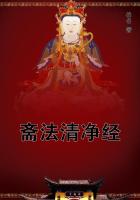The beautiful metropolis of America is by no means so clean a city as Boston,but many of its streets have the same characteristics;except that the houses are not quite so fresh-coloured,the sign-boards are not quite so gaudy,the gilded letters not quite so golden,the bricks not quite so red,the stone not quite so white,the blinds and area railings not quite so green,the knobs and plates upon the street doors not quite so bright and twinkling.
There are many by-streets,almost as neutral in clean colours,and positive in dirty ones,as by-streets in London;and there is one quarter,commonly called the Five Points,which,in respect of filth and wretchedness,may be safely backed against Seven Dials,or any other part of famed St.Giles's.
The great promenade and thoroughfare,as most people know,is Broadway;a wide and bustling street,which,from the Battery Gardens to its opposite termination in a country road,may be four miles long.Shall we sit down in an upper floor of the Carlton House Hotel (situated in the best part of this main artery of New York),and when we are tired of looking down upon the life below,sally forth arm-in-arm,and mingle with the stream?
Warm weather!The sun strikes upon our heads at this open window,as though its rays were concentrated through a burning-glass;but the day is in its zenith,and the season an unusual one.Was there ever such a sunny street as this Broadway!The pavement stones are polished with the tread of feet until they shine again;the red bricks of the houses might be yet in the dry,hot kilns;and the roofs of those omnibuses look as though,if water were poured on them,they would hiss and smoke,and smell like half-quenched fires.No stint of omnibuses here!Half-a-dozen have gone by within as many minutes.Plenty of hackney cabs and coaches too;gigs,phaetons,large-wheeled tilburies,and private carriages -rather of a clumsy make,and not very different from the public vehicles,but built for the heavy roads beyond the city pavement.
Negro coachmen and white;in straw hats,black hats,white hats,glazed caps,fur caps;in coats of drab,black,brown,green,blue,nankeen,striped jean and linen;and there,in that one instance (look while it passes,or it will be too late),in suits of livery.
Some southern republican that,who puts his blacks in uniform,and swells with Sultan pomp and power.Yonder,where that phaeton with the well-clipped pair of grays has stopped -standing at their heads now -is a Yorkshire groom,who has not been very long in these parts,and looks sorrowfully round for a companion pair of top-boots,which he may traverse the city half a year without meeting.Heaven save the ladies,how they dress!We have seen more colours in these ten minutes,than we should have seen elsewhere,in as many days.What various parasols!what rainbow silks and satins!what pinking of thin stockings,and pinching of thin shoes,and fluttering of ribbons and silk tassels,and display of rich cloaks with gaudy hoods and linings!The young gentlemen are fond,you see,of turning down their shirt-collars and cultivating their whiskers,especially under the chin;but they cannot approach the ladies in their dress or bearing,being,to say the truth,humanity of quite another sort.Byrons of the desk and counter,pass on,and let us see what kind of men those are behind ye:those two labourers in holiday clothes,of whom one carries in his hand a crumpled scrap of paper from which he tries to spell out a hard name,while the other looks about for it on all the doors and windows.
Irishmen both!You might know them,if they were masked,by their long-tailed blue coats and bright buttons,and their drab trousers,which they wear like men well used to working dresses,who are easy in no others.It would be hard to keep your model republics going,without the countrymen and countrywomen of those two labourers.
For who else would dig,and delve,and drudge,and do domestic work,and make canals and roads,and execute great lines of Internal Improvement!Irishmen both,and sorely puzzled too,to find out what they seek.Let us go down,and help them,for the love of home,and that spirit of liberty which admits of honest service to honest men,and honest work for honest bread,no matter what it be.
That's well!We have got at the right address at last,though it is written in strange characters truly,and might have been scrawled with the blunt handle of the spade the writer better knows the use of,than a pen.Their way lies yonder,but what business takes them there?They carry savings:to hoard up?No.They are brothers,those men.One crossed the sea alone,and working very hard for one half year,and living harder,saved funds enough to bring the other out.That done,they worked together side by side,contentedly sharing hard labour and hard living for another term,and then their sisters came,and then another brother,and lastly,their old mother.And what now?Why,the poor old crone is restless in a strange land,and yearns to lay her bones,she says,among her people in the old graveyard at home:and so they go to pay her passage back:and God help her and them,and every simple heart,and all who turn to the Jerusalem of their younger days,and have an altar-fire upon the cold hearth of their fathers.
This narrow thoroughfare,baking and blistering in the sun,is Wall Street:the Stock Exchange and Lombard Street of New York.Many a rapid fortune has been made in this street,and many a no less rapid ruin.Some of these very merchants whom you see hanging about here now,have locked up money in their strong-boxes,like the man in the Arabian Nights,and opening them again,have found but withered leaves.Below,here by the water-side,where the bowsprits of ships stretch across the footway,and almost thrust themselves into the windows,lie the noble American vessels which having made their Packet Service the finest in the world.They have brought hither the foreigners who abound in all the streets:
not,perhaps,that there are more here,than in other commercial cities;but elsewhere,they have particular haunts,and you must find them out;here,they pervade the town.
We must cross Broadway again;gaining some refreshment from the heat,in the sight of the great blocks of clean ice which are being carried into shops and bar-rooms;and the pine-apples and water-melons profusely displayed for sale.Fine streets of spacious houses here,you see!-Wall Street has furnished and dismantled many of them very often -and here a deep green leafy square.Be sure that is a hospitable house with inmates to be affectionately remembered always,where they have the open door and pretty show of plants within,and where the child with laughing eyes is peeping out of window at the little dog below.You wonder what may be the use of this tall flagstaff in the by-street,with something like Liberty's head-dress on its top:so do I.But there is a passion for tall flagstaffs hereabout,and you may see its twin brother in five minutes,if you have a mind.
Again across Broadway,and so -passing from the many-coloured crowd and glittering shops -into another long main street,the Bowery.A railroad yonder,see,where two stout horses trot along,drawing a score or two of people and a great wooden ark,with ease.
The stores are poorer here;the passengers less gay.Clothes ready-made,and meat ready-cooked,are to be bought in these parts;and the lively whirl of carriages is exchanged for the deep rumble of carts and waggons.These signs which are so plentiful,in shape like river buoys,or small balloons,hoisted by cords to poles,and dangling there,announce,as you may see by looking up,'OYSTERS INEVERY STYLE.'They tempt the hungry most at night,for then dull candles glimmering inside,illuminate these dainty words,and make the mouths of idlers water,as they read and linger.
What is this dismal-fronted pile of bastard Egyptian,like an enchanter's palace in a melodrama!-a famous prison,called The Tombs.Shall we go in?
So.A long,narrow,lofty building,stove-heated as usual,with four galleries,one above the other,going round it,and communicating by stairs.Between the two sides of each gallery,and in its centre,a bridge,for the greater convenience of crossing.On each of these bridges sits a man:dozing or reading,or talking to an idle companion.On each tier,are two opposite rows of small iron doors.They look like furnace-doors,but are cold and black,as though the fires within had all gone out.Some two or three are open,and women,with drooping heads bent down,are talking to the inmates.The whole is lighted by a skylight,but it is fast closed;and from the roof there dangle,limp and drooping,two useless windsails.
A man with keys appears,to show us round.A good-looking fellow,and,in his way,civil and obliging.
'Are those black doors the cells?'
'Yes.'
'Are they all full?'
'Well,they're pretty nigh full,and that's a fact,and no two ways about it.'
'Those at the bottom are unwholesome,surely?'
'Why,we DO only put coloured people in 'em.That's the truth.'
'When do the prisoners take exercise?'
'Well,they do without it pretty much.'
'Do they never walk in the yard?'
'Considerable seldom.'
'Sometimes,I suppose?'
'Well,it's rare they do.They keep pretty bright without it.'
'But suppose a man were here for a twelvemonth.I know this is only a prison for criminals who are charged with grave offences,while they are awaiting their trial,or under remand,but the law here affords criminals many means of delay.What with motions for new trials,and in arrest of judgment,and what not,a prisoner might be here for twelve months,I take it,might he not?'
'Well,I guess he might.'
'Do you mean to say that in all that time he would never come out at that little iron door,for exercise?'
'He might walk some,perhaps -not much.'
'Will you open one of the doors?'
'All,if you like.'
The fastenings jar and rattle,and one of the doors turns slowly on its hinges.Let us look in.A small bare cell,into which the light enters through a high chink in the wall.There is a rude means of washing,a table,and a bedstead.Upon the latter,sits a man of sixty;reading.He looks up for a moment;gives an impatient dogged shake;and fixes his eyes upon his book again.As we withdraw our heads,the door closes on him,and is fastened as before.This man has murdered his wife,and will probably be hanged.
'How long has he been here?'
'A month.'
'When will he be tried?'
'Next term.'
'When is that?'
'Next month.'
'In England,if a man be under sentence of death,even he has air and exercise at certain periods of the day.'
'Possible?'
With what stupendous and untranslatable coolness he says this,and how loungingly he leads on to the women's side:making,as he goes,a kind of iron castanet of the key and the stair-rail!
Each cell door on this side has a square aperture in it.Some of the women peep anxiously through it at the sound of footsteps;others shrink away in shame.-For what offence can that lonely child,of ten or twelve years old,be shut up here?Oh!that boy?
He is the son of the prisoner we saw just now;is a witness against his father;and is detained here for safe keeping,until the trial;that's all.
But it is a dreadful place for the child to pass the long days and nights in.This is rather hard treatment for a young witness,is it not?-What says our conductor?
'Well,it an't a very rowdy life,and THAT'S a fact!'
Again he clinks his metal castanet,and leads us leisurely away.Ihave a question to ask him as we go.
'Pray,why do they call this place The Tombs?'
'Well,it's the cant name.'
'I know it is.Why?'
'Some suicides happened here,when it was first built.I expect it come about from that.'
'I saw just now,that that man's clothes were scattered about the floor of his cell.Don't you oblige the prisoners to be orderly,and put such things away?'
'Where should they put 'em?'
'Not on the ground surely.What do you say to hanging them up?'
He stops and looks round to emphasise his answer:
'Why,I say that's just it.When they had hooks they WOULD hang themselves,so they're taken out of every cell,and there's only the marks left where they used to be!'
The prison-yard in which he pauses now,has been the scene of terrible performances.Into this narrow,grave-like place,men are brought out to die.The wretched creature stands beneath the gibbet on the ground;the rope about his neck;and when the sign is given,a weight at its other end comes running down,and swings him up into the air -a corpse.
The law requires that there be present at this dismal spectacle,the judge,the jury,and citizens to the amount of twenty-five.
From the community it is hidden.To the dissolute and bad,the thing remains a frightful mystery.Between the criminal and them,the prison-wall is interposed as a thick gloomy veil.It is the curtain to his bed of death,his winding-sheet,and grave.From him it shuts out life,and all the motives to unrepenting hardihood in that last hour,which its mere sight and presence is often all-sufficient to sustain.There are no bold eyes to make him bold;no ruffians to uphold a ruffian's name before.All beyond the pitiless stone wall,is unknown space.
Let us go forth again into the cheerful streets.
Once more in Broadway!Here are the same ladies in bright colours,walking to and fro,in pairs and singly;yonder the very same light blue parasol which passed and repassed the hotel-window twenty times while we were sitting there.We are going to cross here.
Take care of the pigs.Two portly sows are trotting up behind this carriage,and a select party of half-a-dozen gentlemen hogs have just now turned the corner.
Here is a solitary swine lounging homeward by himself.He has only one ear;having parted with the other to vagrant-dogs in the course of his city rambles.But he gets on very well without it;and leads a roving,gentlemanly,vagabond kind of life,somewhat answering to that of our club-men at home.He leaves his lodgings every morning at a certain hour,throws himself upon the town,gets through his day in some manner quite satisfactory to himself,and regularly appears at the door of his own house again at night,like the mysterious master of Gil Blas.He is a free-and-easy,careless,indifferent kind of pig,having a very large acquaintance among other pigs of the same character,whom he rather knows by sight than conversation,as he seldom troubles himself to stop and exchange civilities,but goes grunting down the kennel,turning up the news and small-talk of the city in the shape of cabbage-stalks and offal,and bearing no tails but his own:which is a very short one,for his old enemies,the dogs,have been at that too,and have left him hardly enough to swear by.He is in every respect a republican pig,going wherever he pleases,and mingling with the best society,on an equal,if not superior footing,for every one makes way when he appears,and the haughtiest give him the wall,if he prefer it.He is a great philosopher,and seldom moved,unless by the dogs before mentioned.Sometimes,indeed,you may see his small eye twinkling on a slaughtered friend,whose carcase garnishes a butcher's door-post,but he grunts out 'Such is life:
all flesh is pork!'buries his nose in the mire again,and waddles down the gutter:comforting himself with the reflection that there is one snout the less to anticipate stray cabbage-stalks,at any rate.
They are the city scavengers,these pigs.Ugly brutes they are;having,for the most part,scanty brown backs,like the lids of old horsehair trunks:spotted with unwholesome black blotches.They have long,gaunt legs,too,and such peaked snouts,that if one of them could be persuaded to sit for his profile,nobody would recognise it for a pig's likeness.They are never attended upon,or fed,or driven,or caught,but are thrown upon their own resources in early life,and become preternaturally knowing in consequence.Every pig knows where he lives,much better than anybody could tell him.At this hour,just as evening is closing in,you will see them roaming towards bed by scores,eating their way to the last.Occasionally,some youth among them who has over-eaten himself,or has been worried by dogs,trots shrinkingly homeward,like a prodigal son:but this is a rare case:perfect self-possession and self-reliance,and immovable composure,being their foremost attributes.
The streets and shops are lighted now;and as the eye travels down the long thoroughfare,dotted with bright jets of gas,it is reminded of Oxford Street,or Piccadilly.Here and there a flight of broad stone cellar-steps appears,and a painted lamp directs you to the Bowling Saloon,or Ten-Pin alley;Ten-Pins being a game of mingled chance and skill,invented when the legislature passed an act forbidding Nine-Pins.At other downward flights of steps,are other lamps,marking the whereabouts of oyster-cellars -pleasant retreats,say I:not only by reason of their wonderful cookery of oysters,pretty nigh as large as cheese-plates (or for thy dear sake,heartiest of Greek Professors!),but because of all kinds of caters of fish,or flesh,or fowl,in these latitudes,the swallowers of oysters alone are not gregarious;but subduing themselves,as it were,to the nature of what they work in,and copying the coyness of the thing they eat,do sit apart in curtained boxes,and consort by twos,not by two hundreds.
But how quiet the streets are!Are there no itinerant bands;no wind or stringed instruments?No,not one.By day,are there no Punches,Fantoccini,Dancing-dogs,Jugglers,Conjurers,Orchestrinas,or even Barrel-organs?No,not one.Yes,I remember one.One barrel-organ and a dancing-monkey -sportive by nature,but fast fading into a dull,lumpish monkey,of the Utilitarian school.Beyond that,nothing lively;no,not so much as a white mouse in a twirling cage.
Are there no amusements?Yes.There is a lecture-room across the way,from which that glare of light proceeds,and there may be evening service for the ladies thrice a week,or oftener.For the young gentlemen,there is the counting-house,the store,the bar-room:the latter,as you may see through these windows,pretty full.Hark!to the clinking sound of hammers breaking lumps of ice,and to the cool gurgling of the pounded bits,as,in the process of mixing,they are poured from glass to glass!No amusements?What are these suckers of cigars and swallowers of strong drinks,whose hats and legs we see in every possible variety of twist,doing,but amusing themselves?What are the fifty newspapers,which those precocious urchins are bawling down the street,and which are kept filed within,what are they but amusements?Not vapid,waterish amusements,but good strong stuff;dealing in round abuse and blackguard names;pulling off the roofs of private houses,as the Halting Devil did in Spain;pimping and pandering for all degrees of vicious taste,and gorging with coined lies the most voracious maw;imputing to every man in public life the coarsest and the vilest motives;scaring away from the stabbed and prostrate body-politic,every Samaritan of clear conscience and good deeds;and setting on,with yell and whistle and the clapping of foul hands,the vilest vermin and worst birds of prey.-No amusements!
Let us go on again;and passing this wilderness of an hotel with stores about its base,like some Continental theatre,or the London Opera House shorn of its colonnade,plunge into the Five Points.
But it is needful,first,that we take as our escort these two heads of the police,whom you would know for sharp and well-trained officers if you met them in the Great Desert.So true it is,that certain pursuits,wherever carried on,will stamp men with the same character.These two might have been begotten,born,and bred,in Bow Street.
We have seen no beggars in the streets by night or day;but of other kinds of strollers,plenty.Poverty,wretchedness,and vice,are rife enough where we are going now.
This is the place:these narrow ways,diverging to the right and left,and reeking everywhere with dirt and filth.Such lives as are led here,bear the same fruits here as elsewhere.The coarse and bloated faces at the doors,have counterparts at home,and all the wide world over.Debauchery has made the very houses prematurely old.See how the rotten beams are tumbling down,and how the patched and broken windows seem to scowl dimly,like eyes that have been hurt in drunken frays.Many of those pigs live here.Do they ever wonder why their masters walk upright in lieu of going on all-fours?and why they talk instead of grunting?
So far,nearly every house is a low tavern;and on the bar-room walls,are coloured prints of Washington,and Queen Victoria of England,and the American Eagle.Among the pigeon-holes that hold the bottles,are pieces of plate-glass and coloured paper,for there is,in some sort,a taste for decoration,even here.And as seamen frequent these haunts,there are maritime pictures by the dozen:of partings between sailors and their lady-loves,portraits of William,of the ballad,and his Black-Eyed Susan;of Will Watch,the Bold Smuggler;of Paul Jones the Pirate,and the like:on which the painted eyes of Queen Victoria,and of Washington to boot,rest in as strange companionship,as on most of the scenes that are enacted in their wondering presence.
What place is this,to which the squalid street conducts us?Akind of square of leprous houses,some of which are attainable only by crazy wooden stairs without.What lies beyond this tottering flight of steps,that creak beneath our tread?-a miserable room,lighted by one dim candle,and destitute of all comfort,save that which may be hidden in a wretched bed.Beside it,sits a man:his elbows on his knees:his forehead hidden in his hands.'What ails that man?'asks the foremost officer.'Fever,'he sullenly replies,without looking up.Conceive the fancies of a feverish brain,in such a place as this!
Ascend these pitch-dark stairs,heedful of a false footing on the trembling boards,and grope your way with me into this wolfish den,where neither ray of light nor breath of air,appears to come.Anegro lad,startled from his sleep by the officer's voice -he knows it well -but comforted by his assurance that he has not come on business,officiously bestirs himself to light a candle.The match flickers for a moment,and shows great mounds of dusty rags upon the ground;then dies away and leaves a denser darkness than before,if there can be degrees in such extremes.He stumbles down the stairs and presently comes back,shading a flaring taper with his hand.Then the mounds of rags are seen to be astir,and rise slowly up,and the floor is covered with heaps of negro women,waking from their sleep:their white teeth chattering,and their bright eyes glistening and winking on all sides with surprise and fear,like the countless repetition of one astonished African face in some strange mirror.
Mount up these other stairs with no less caution (there are traps and pitfalls here,for those who are not so well escorted as ourselves)into the housetop;where the bare beams and rafters meet overhead,and calm night looks down through the crevices in the roof.Open the door of one of these cramped hutches full of sleeping negroes.Pah!They have a charcoal fire within;there is a smell of singeing clothes,or flesh,so close they gather round the brazier;and vapours issue forth that blind and suffocate.
From every corner,as you glance about you in these dark retreats,some figure crawls half-awakened,as if the judgment-hour were near at hand,and every obscene grave were giving up its dead.Where dogs would howl to lie,women,and men,and boys slink off to sleep,forcing the dislodged rats to move away in quest of better lodgings.
Here too are lanes and alleys,paved with mud knee-deep,underground chambers,where they dance and game;the walls bedecked with rough designs of ships,and forts,and flags,and American eagles out of number:ruined houses,open to the street,whence,through wide gaps in the walls,other ruins loom upon the eye,as though the world of vice and misery had nothing else to show:
hideous tenements which take their name from robbery and murder:
all that is loathsome,drooping,and decayed is here.
Our leader has his hand upon the latch of 'Almack's,'and calls to us from the bottom of the steps;for the assembly-room of the Five Point fashionables is approached by a descent.Shall we go in?It is but a moment.
Heyday!the landlady of Almack's thrives!A buxom fat mulatto woman,with sparkling eyes,whose head is daintily ornamented with a handkerchief of many colours.Nor is the landlord much behind her in his finery,being attired in a smart blue jacket,like a ship's steward,with a thick gold ring upon his little finger,and round his neck a gleaming golden watch-guard.How glad he is to see us!What will we please to call for?A dance?It shall be done directly,sir:'a regular break-down.'
The corpulent black fiddler,and his friend who plays the tambourine,stamp upon the boarding of the small raised orchestra in which they sit,and play a lively measure.Five or six couple come upon the floor,marshalled by a lively young negro,who is the wit of the assembly,and the greatest dancer known.He never leaves off making queer faces,and is the delight of all the rest,who grin from ear to ear incessantly.Among the dancers are two young mulatto girls,with large,black,drooping eyes,and head-gear after the fashion of the hostess,who are as shy,or feign to be,as though they never danced before,and so look down before the visitors,that their partners can see nothing but the long fringed lashes.
But the dance commences.Every gentleman sets as long as he likes to the opposite lady,and the opposite lady to him,and all are so long about it that the sport begins to languish,when suddenly the lively hero dashes in to the rescue.Instantly the fiddler grins,and goes at it tooth and nail;there is new energy in the tambourine;new laughter in the dancers;new smiles in the landlady;new confidence in the landlord;new brightness in the very candles.
Single shuffle,double shuffle,cut and cross-cut;snapping his fingers,rolling his eyes,turning in his knees,presenting the backs of his legs in front,spinning about on his toes and heels like nothing but the man's fingers on the tambourine;dancing with two left legs,two right legs,two wooden legs,two wire legs,two spring legs -all sorts of legs and no legs -what is this to him?
And in what walk of life,or dance of life,does man ever get such stimulating applause as thunders about him,when,having danced his partner off her feet,and himself too,he finishes by leaping gloriously on the bar-counter,and calling for something to drink,with the chuckle of a million of counterfeit Jim Crows,in one inimitable sound!
The air,even in these distempered parts,is fresh after the stifling atmosphere of the houses;and now,as we emerge into a broader street,it blows upon us with a purer breath,and the stars look bright again.Here are The Tombs once more.The city watch-house is a part of the building.It follows naturally on the sights we have just left.Let us see that,and then to bed.
What!do you thrust your common offenders against the police discipline of the town,into such holes as these?Do men and women,against whom no crime is proved,lie here all night in perfect darkness,surrounded by the noisome vapours which encircle that flagging lamp you light us with,and breathing this filthy and offensive stench!Why,such indecent and disgusting dungeons as these cells,would bring disgrace upon the most despotic empire in the world!Look at them,man -you,who see them every night,and keep the keys.Do you see what they are?Do you know how drains are made below the streets,and wherein these human sewers differ,except in being always stagnant?
Well,he don't know.He has had five-and-twenty young women locked up in this very cell at one time,and you'd hardly realise what handsome faces there were among 'em.
In God's name!shut the door upon the wretched creature who is in it now,and put its screen before a place,quite unsurpassed in all the vice,neglect,and devilry,of the worst old town in Europe.
Are people really left all night,untried,in those black sties?-Every night.The watch is set at seven in the evening.The magistrate opens his court at five in the morning.That is the earliest hour at which the first prisoner can be released;and if an officer appear against him,he is not taken out till nine o'clock or ten.-But if any one among them die in the interval,as one man did,not long ago?Then he is half-eaten by the rats in an hour's time;as that man was;and there an end.
What is this intolerable tolling of great bells,and crashing of wheels,and shouting in the distance?A fire.And what that deep red light in the opposite direction?Another fire.And what these charred and blackened walls we stand before?A dwelling where a fire has been.It was more than hinted,in an official report,not long ago,that some of these conflagrations were not wholly accidental,and that speculation and enterprise found a field of exertion,even in flames:but be this as it may,there was a fire last night,there are two to-night,and you may lay an even wager there will be at least one,to-morrow.So,carrying that with us for our comfort,let us say,Good night,and climb up-stairs to bed.
One day,during my stay in New York,I paid a visit to the different public institutions on Long Island,or Rhode Island:Iforget which.One of them is a Lunatic Asylum.The building is handsome;and is remarkable for a spacious and elegant staircase.
The whole structure is not yet finished,but it is already one of considerable size and extent,and is capable of accommodating a very large number of patients.
I cannot say that I derived much comfort from the inspection of this charity.The different wards might have been cleaner and better ordered;I saw nothing of that salutary system which had impressed me so favourably elsewhere;and everything had a lounging,listless,madhouse air,which was very painful.The moping idiot,cowering down with long dishevelled hair;the gibbering maniac,with his hideous laugh and pointed finger;the vacant eye,the fierce wild face,the gloomy picking of the hands and lips,and munching of the nails:there they were all,without disguise,in naked ugliness and horror.In the dining-room,a bare,dull,dreary place,with nothing for the eye to rest on but the empty walls,a woman was locked up alone.She was bent,they told me,on committing suicide.If anything could have strengthened her in her resolution,it would certainly have been the insupportable monotony of such an existence.
The terrible crowd with which these halls and galleries were filled,so shocked me,that I abridged my stay within the shortest limits,and declined to see that portion of the building in which the refractory and violent were under closer restraint.I have no doubt that the gentleman who presided over this establishment at the time I write of,was competent to manage it,and had done all in his power to promote its usefulness:but will it be believed that the miserable strife of Party feeling is carried even into this sad refuge of afflicted and degraded humanity?Will it be believed that the eyes which are to watch over and control the wanderings of minds on which the most dreadful visitation to which our nature is exposed has fallen,must wear the glasses of some wretched side in Politics?Will it be believed that the governor of such a house as this,is appointed,and deposed,and changed perpetually,as Parties fluctuate and vary,and as their despicable weathercocks are blown this way or that?A hundred times in every week,some new most paltry exhibition of that narrow-minded and injurious Party Spirit,which is the Simoom of America,sickening and blighting everything of wholesome life within its reach,was forced upon my notice;but I never turned my back upon it with feelings of such deep disgust and measureless contempt,as when Icrossed the threshold of this madhouse.
At a short distance from this building is another called the Alms House,that is to say,the workhouse of New York.This is a large Institution also:lodging,I believe,when I was there,nearly a thousand poor.It was badly ventilated,and badly lighted;was not too clean;-and impressed me,on the whole,very uncomfortably.
But it must be remembered that New York,as a great emporium of commerce,and as a place of general resort,not only from all parts of the States,but from most parts of the world,has always a large pauper population to provide for;and labours,therefore,under peculiar difficulties in this respect.Nor must it be forgotten that New York is a large town,and that in all large towns a vast amount of good and evil is intermixed and jumbled up together.
In the same neighbourhood is the Farm,where young orphans are nursed and bred.I did not see it,but I believe it is well conducted;and I can the more easily credit it,from knowing how mindful they usually are,in America,of that beautiful passage in the Litany which remembers all sick persons and young children.
I was taken to these Institutions by water,in a boat belonging to the Island jail,and rowed by a crew of prisoners,who were dressed in a striped uniform of black and buff,in which they looked like faded tigers.They took me,by the same conveyance,to the jail itself.
It is an old prison,and quite a pioneer establishment,on the plan I have already described.I was glad to hear this,for it is unquestionably a very indifferent one.The most is made,however,of the means it possesses,and it is as well regulated as such a place can be.
The women work in covered sheds,erected for that purpose.If Iremember right,there are no shops for the men,but be that as it may,the greater part of them labour in certain stone-quarries near at hand.The day being very wet indeed,this labour was suspended,and the prisoners were in their cells.Imagine these cells,some two or three hundred in number,and in every one a man locked up;this one at his door for air,with his hands thrust through the grate;this one in bed (in the middle of the day,remember);and this one flung down in a heap upon the ground,with his head against the bars,like a wild beast.Make the rain pour down,outside,in torrents.Put the everlasting stove in the midst;hot,and suffocating,and vaporous,as a witch's cauldron.Add a collection of gentle odours,such as would arise from a thousand mildewed umbrellas,wet through,and a thousand buck-baskets,full of half-washed linen -and there is the prison,as it was that day.
The prison for the State at Sing Sing is,on the other hand,a model jail.That,and Auburn,are,I believe,the largest and best examples of the silent system.
In another part of the city,is the Refuge for the Destitute:an Institution whose object is to reclaim youthful offenders,male and female,black and white,without distinction;to teach them useful trades,apprentice them to respectable masters,and make them worthy members of society.Its design,it will be seen,is similar to that at Boston;and it is a no less meritorious and admirable establishment.A suspicion crossed my mind during my inspection of this noble charity,whether the superintendent had quite sufficient knowledge of the world and worldly characters;and whether he did not commit a great mistake in treating some young girls,who were to all intents and purposes,by their years and their past lives,women,as though they were little children;which certainly had a ludicrous effect in my eyes,and,or I am much mistaken,in theirs also.As the Institution,however,is always under a vigilant examination of a body of gentlemen of great intelligence and experience,it cannot fail to be well conducted;and whether I am right or wrong in this slight particular,is unimportant to its deserts and character,which it would be difficult to estimate too highly.
In addition to these establishments,there are in New York,excellent hospitals and schools,literary institutions and libraries;an admirable fire department (as indeed it should be,having constant practice),and charities of every sort and kind.
In the suburbs there is a spacious cemetery:unfinished yet,but every day improving.The saddest tomb I saw there was 'The Strangers'Grave.Dedicated to the different hotels in this city.'
There are three principal theatres.Two of them,the Park and the Bowery,are large,elegant,and handsome buildings,and are,Igrieve to write it,generally deserted.The third,the Olympic,is a tiny show-box for vaudevilles and burlesques.It is singularly well conducted by Mr.Mitchell,a comic actor of great quiet humour and originality,who is well remembered and esteemed by London playgoers.I am happy to report of this deserving gentleman,that his benches are usually well filled,and that his theatre rings with merriment every night.I had almost forgotten a small summer theatre,called Niblo's,with gardens and open air amusements attached;but I believe it is not exempt from the general depression under which Theatrical Property,or what is humorously called by that name,unfortunately labours.
The country round New York is surpassingly and exquisitely picturesque.The climate,as I have already intimated,is somewhat of the warmest.What it would be,without the sea breezes which come from its beautiful Bay in the evening time,I will not throw myself or my readers into a fever by inquiring.
The tone of the best society in this city,is like that of Boston;here and there,it may be,with a greater infusion of the mercantile spirit,but generally polished and refined,and always most hospitable.The houses and tables are elegant;the hours later and more rakish;and there is,perhaps,a greater spirit of contention in reference to appearances,and the display of wealth and costly living.The ladies are singularly beautiful.
Before I left New York I made arrangements for securing a passage home in the George Washington packet ship,which was advertised to sail in June:that being the month in which I had determined,if prevented by no accident in the course of my ramblings,to leave America.
I never thought that going back to England,returning to all who are dear to me,and to pursuits that have insensibly grown to be a part of my nature,I could have felt so much sorrow as I endured,when I parted at last,on board this ship,with the friends who had accompanied me from this city.I never thought the name of any place,so far away and so lately known,could ever associate itself in my mind with the crowd of affectionate remembrances that now cluster about it.There are those in this city who would brighten,to me,the darkest winter-day that ever glimmered and went out in Lapland;and before whose presence even Home grew dim,when they and I exchanged that painful word which mingles with our every thought and deed;which haunts our cradle-heads in infancy,and closes up the vista of our lives in age.















